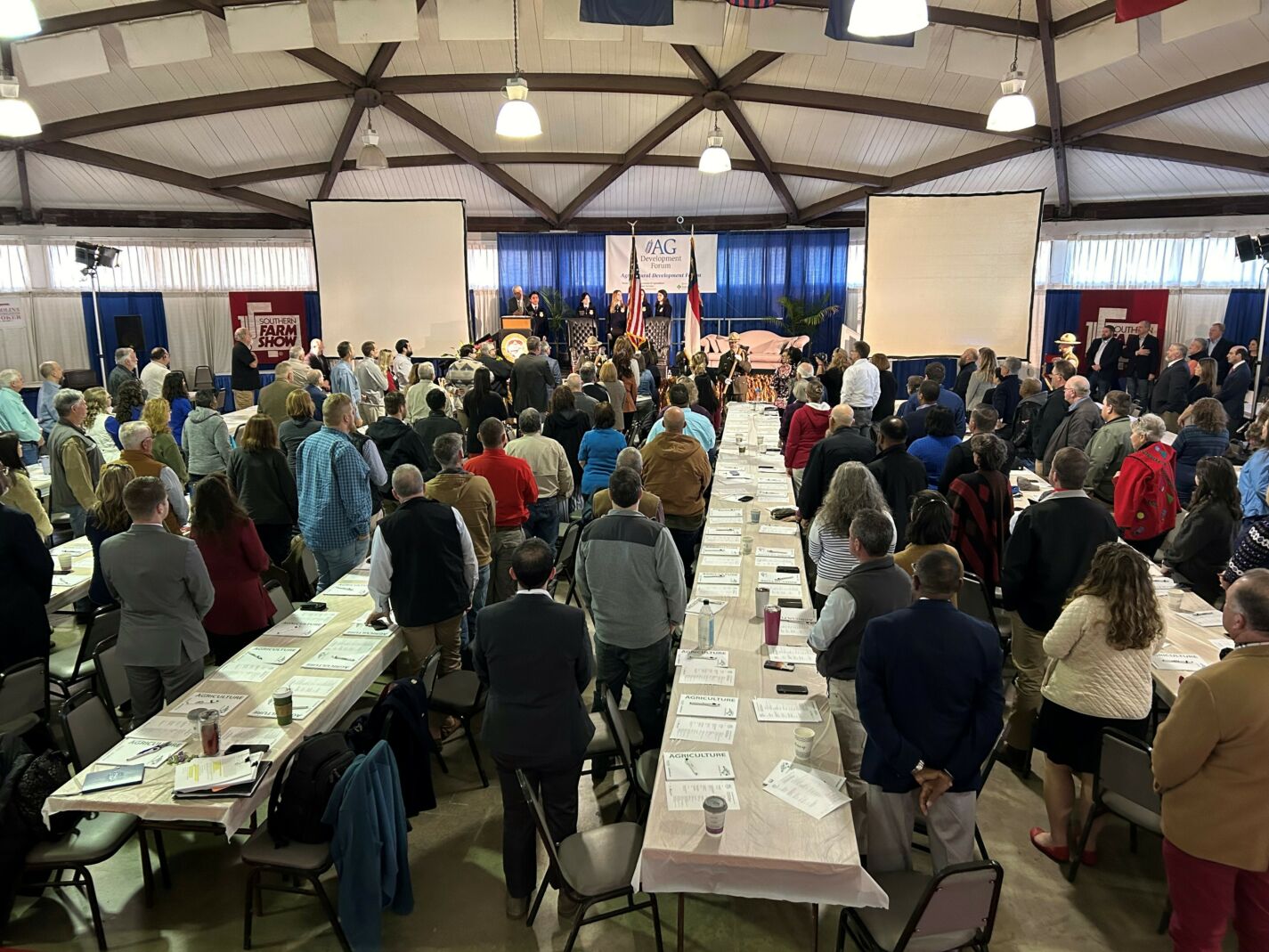While job gains in North Carolina have slowed per month from 20k-10k, the state is still doing better than the country on average, says Dr. Jeffrey Dorfman, professor of Agriculture and resource economics at NCSU. At the recent 19th annual Agriculture Development Forum, Dorfman gave his predictions for agriculture’s economic outlook. He warns that many people believe if inflation goes down, prices will too, but that may not be the case.
“People have only stayed ahead by working more jobs,” said Dorfman. “For most things, prices will never go back down. Exceptions include fertilizer, energy, and commodity prices.”
“For most people that aren’t economists, it doesn’t matter if the economy is growing slightly or shrinking slightly,” he added. “Bank of America says that credit card spending has only gone up by two-tenths of a percent in 2023.”
Dorfman thinks that the recession concerns are limited right now to economists, the media, and whatever political party is not in power.
“Ordinary people care about two things: if they have a job and if they can afford to buy the stuff they want to buy,” he said. “Those things aren’t going to be a problem because inflation is slowing down, and businesses are scared to fire workers.”
He believes that businesses will keep their good workers and find work for them because they had such difficulty hiring after Covid shutdowns and the slow return to work.
two big risks to ag in 2024
China and the recession are the two red flags in 2024 for Dorfman, and the impact of the election will depend largely on whether the winner engages in a trade war with China. He thought that could be possible with either likely candidate.
“Americans are rich enough that we buy food, recession or not. If restaurant spending drops, that hits vegetable farmers hard,” he said.
Dorfman says that North Carolina plants the same total acreage of crops every year. That means that if one crop goes up, they are stealing acreage from another crop. Corn is the swing commodity when it comes to crops in North Carolina; when corn acreage goes up, everything else goes down, and when corn acreage goes down, everything else goes up.
labor costs and H2A
Labor costs are another big issue in the 2024 economic landscape of agriculture, particularly with concerns about H2A classification workers.
The H-2A Classification “allows U.S. employers or U.S. agents who meet specific regulatory requirements to bring foreign nationals to the United States to fill temporary agricultural jobs. A U.S. employer, a U.S. agent as described in the regulations, or an association of U.S. agricultural producers named as a joint employer must file Form I-129, Petition for a Nonimmigrant Worker, on a prospective worker’s behalf,” according to the U.S. Citizenship and Immigration Services.
“We are reaching a point where high labor crops are a severe disadvantage,” he said. “We’re also definitely at a point where HOA only makes sense if those workers can be used on multiple clients, right? You can’t bring workers in just to work tobacco and send them back home… it is definitely something we need sort of a long-term solution for soon.”
“Today American farmers get $0.20 or less of every food dollar,” said Dorfman. “We’re not getting $0.20 or less of every food dollar because farmers are somehow being, you know, ripped off by powerful big food companies. It’s because the food sold in the grocery store is so much more processed than it used to be. Instead of buying whole chickens, now we buy boneless skinless teriyaki marinated chicken breasts.”
A big trend experts see moving forward in 2024 is the farm culture, not just the products. Dorfman encouraged farmers to sell the experience of being on a farm, picking apples and taking golden-hour selfies.
“Capture as much of the value added of your products as you can,” he told the crowd.
